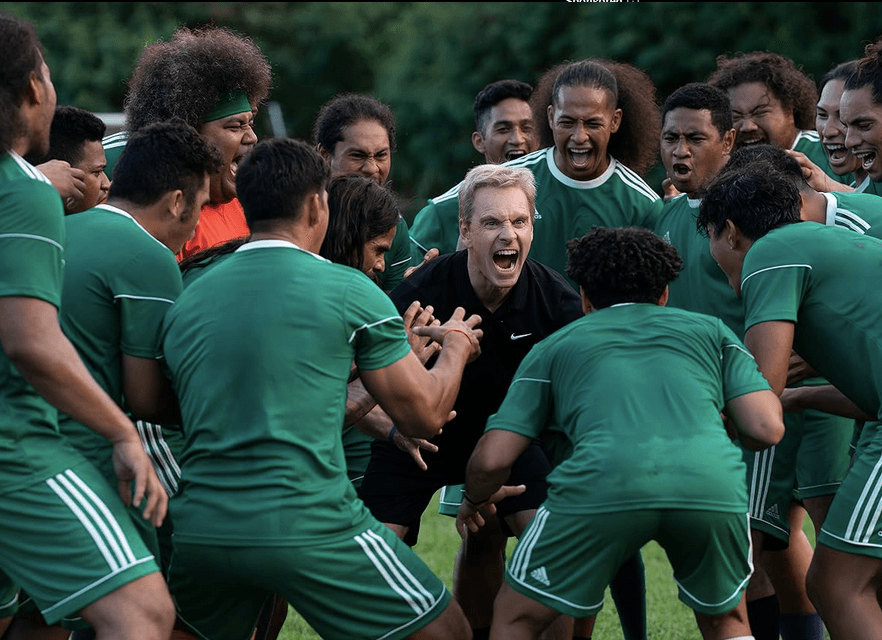In “Next Goal Wins,” New Zealand director Taika Waititi (“Hunt for the Wilderpeople,” “Thor: Ragnarok”) directs a comedy version of Mike Brett and Steve Jamison’s 2014 documentary of the same name.
‘Next Goal Wins’: Unfortunately It’s Not ’Cool Runnings’
Based on a true story, “Next Goal Wins” had huge potential to be an extremely funny comedy, but misses that next goal and wins nothing.

Coach Thomas Rongen (Michael Fassbender, center), in black) inspires his team, in “Next Goal Wins.” Hilary Bronwyn Gayle/Searchlight Pictures
Mark Jackson is the senior film critic for The Epoch Times and a Rotten Tomatoes-approved critic. Mark earned a bachelor's degree in philosophy from Williams College, followed by classical theater conservatory training, and has 20 years' experience as a New York professional actor. He narrated The Epoch Times audiobook "How the Specter of Communism Is Ruling Our World," available on iTunes, Audible, and YouTube. Mark is featured in the book "How to Be a Film Critic in Five Easy Lessons" by Christopher K. Brooks. In addition to films, he enjoys Harley-Davidsons, rock-climbing, qigong, martial arts, and human rights activism.
Author’s Selected Articles





